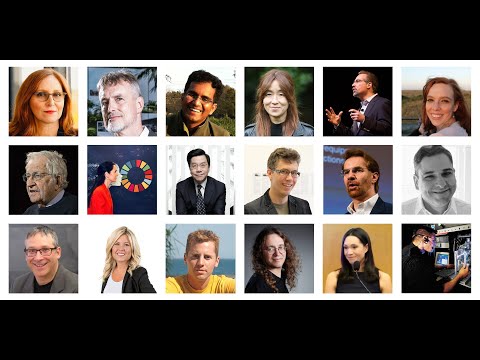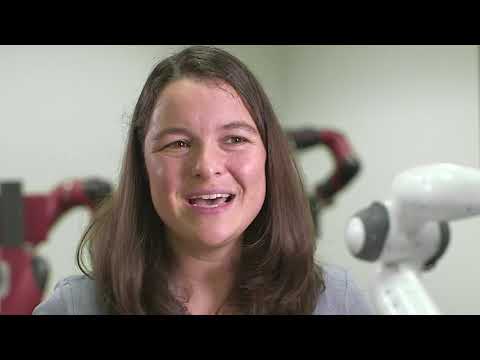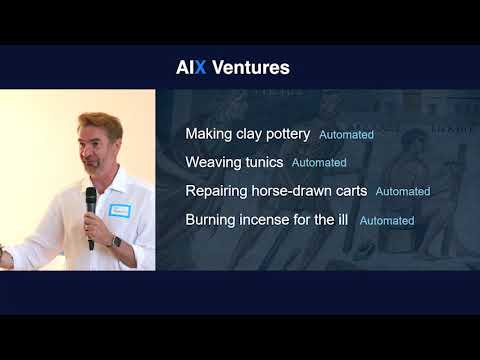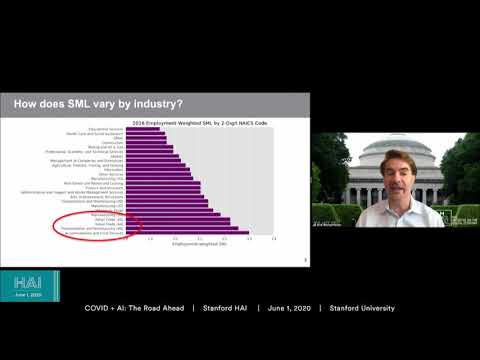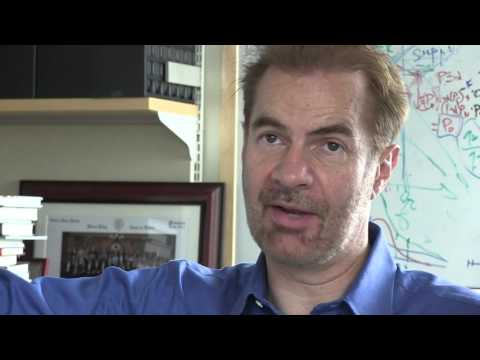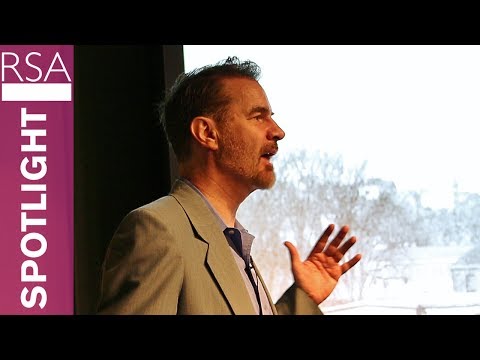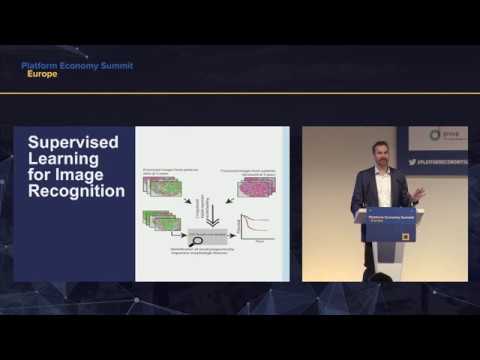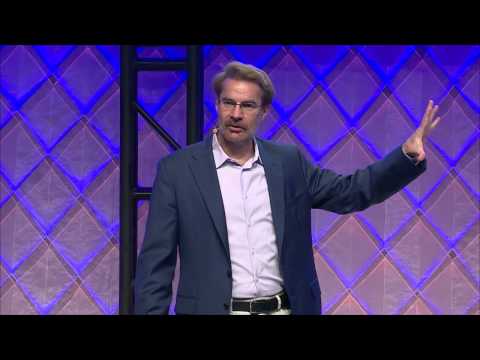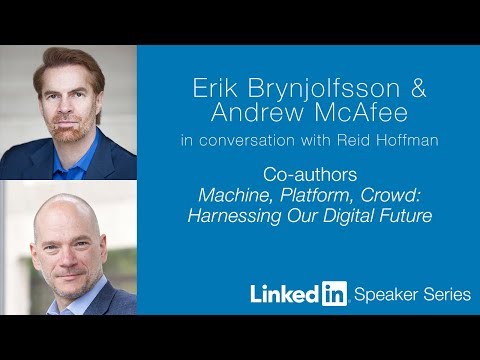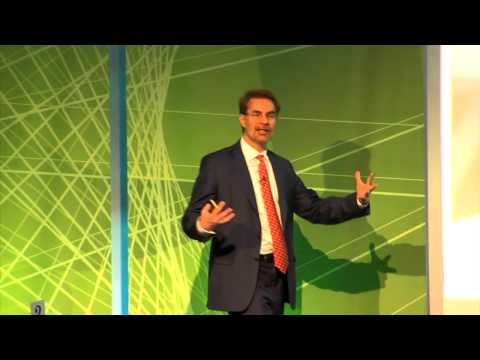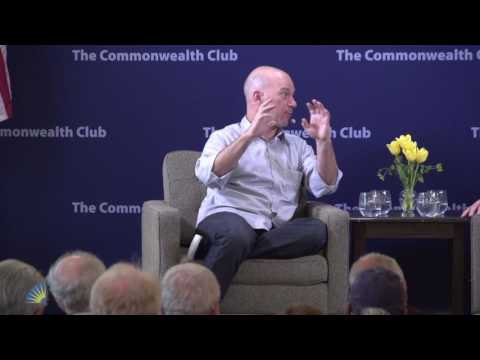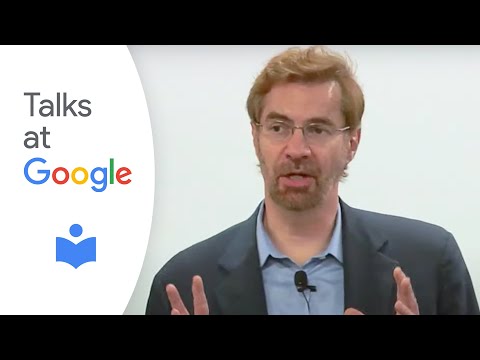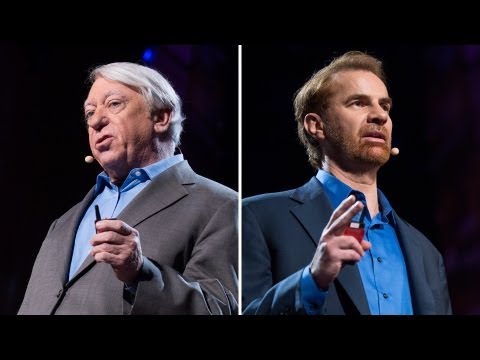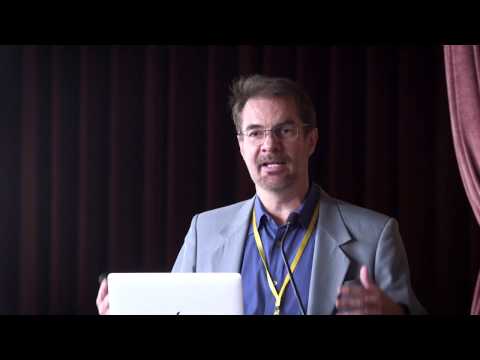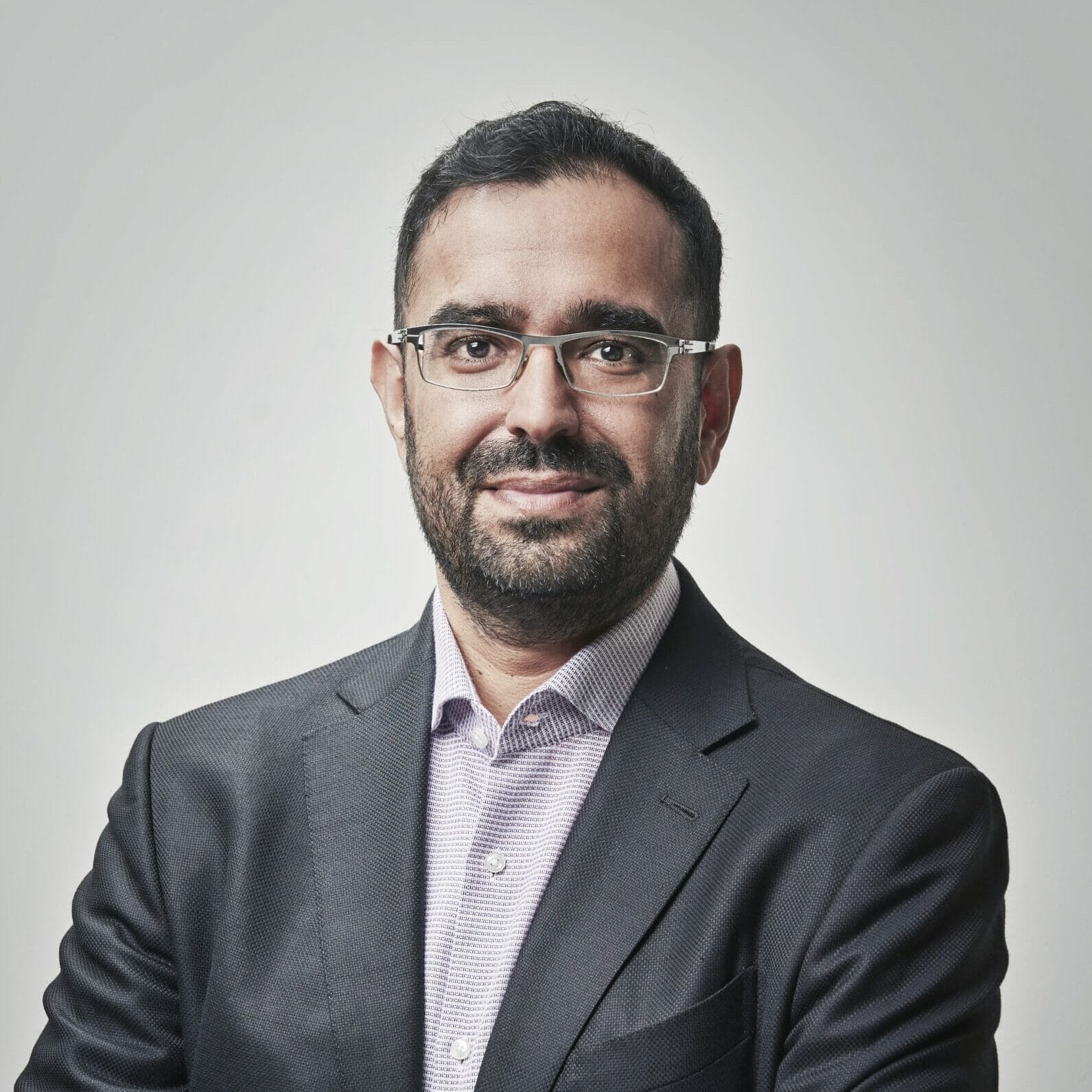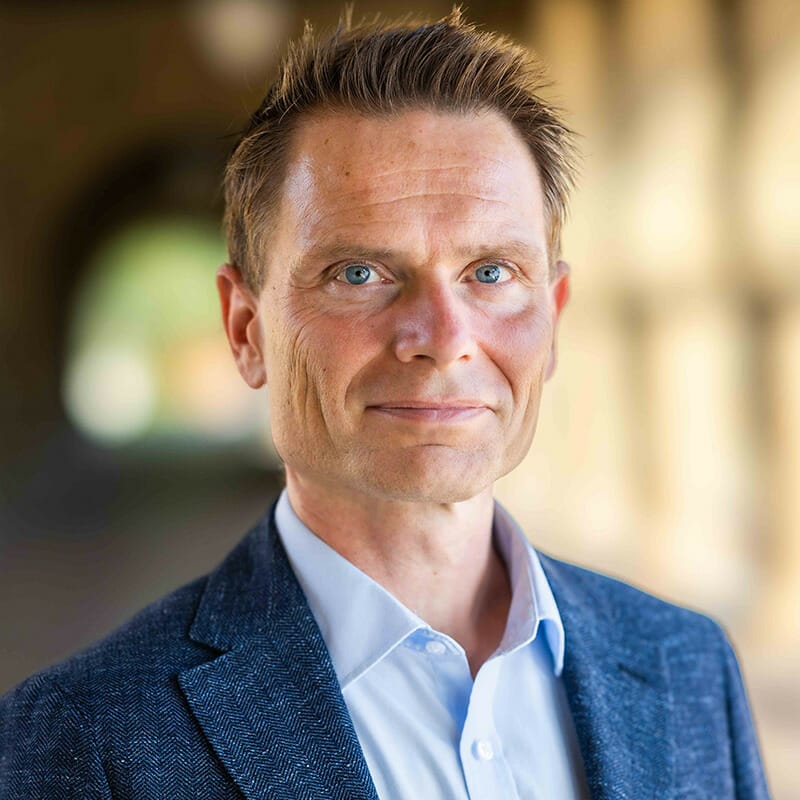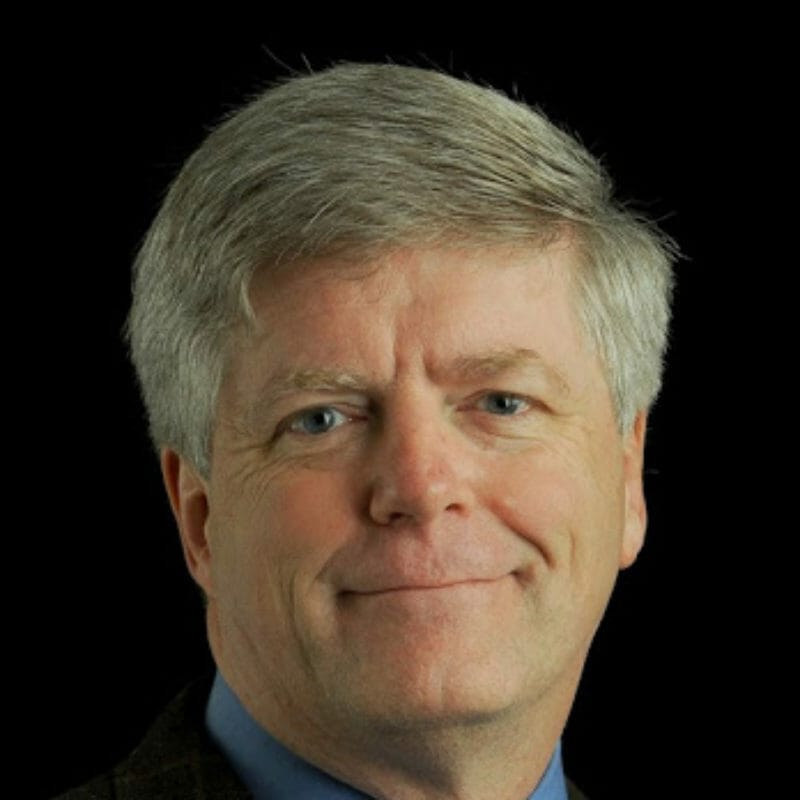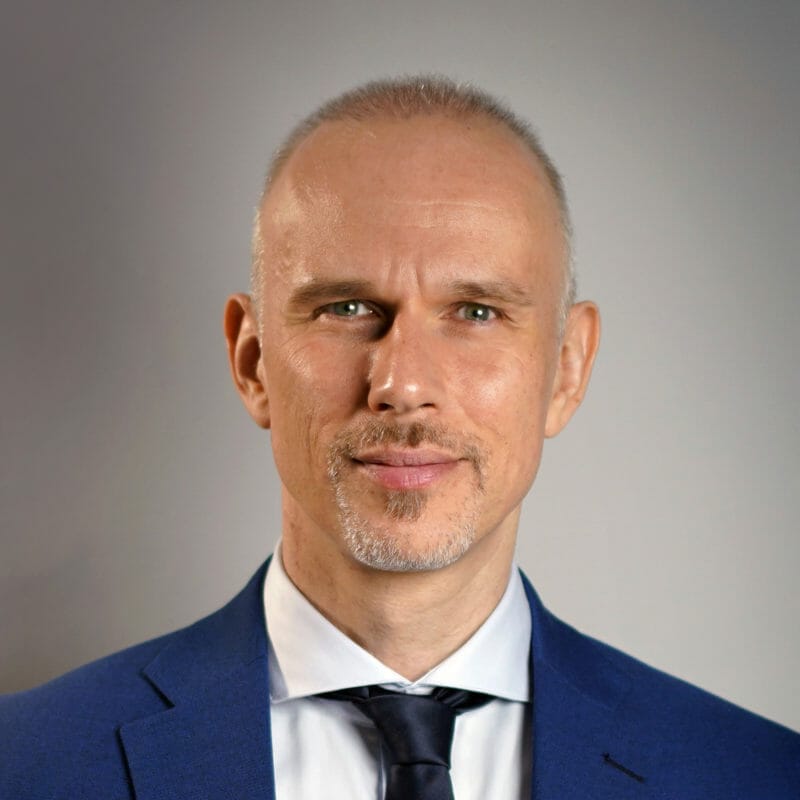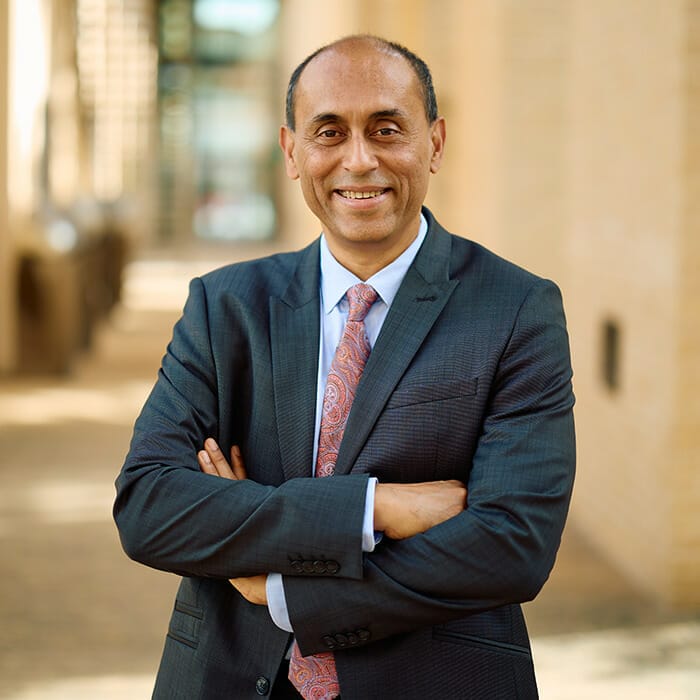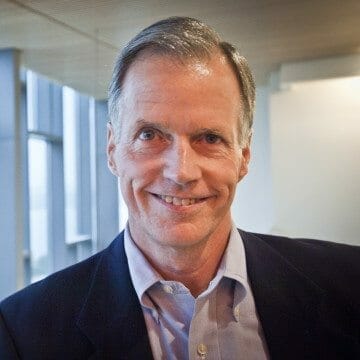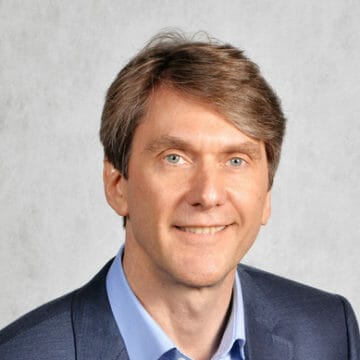Videos
Learn More About Erik Brynjolfsson
With the ever-growing influence of technology on business and society, how will advancements like artificial intelligence (AI) impact how we work and conduct business? The New York Times bestselling author Erik Brynjolfsson (pronounced brin-YOLF-son) – director of the Stanford University Digital Economy Lab at the Institute for Human-Centered Artificial Intelligence and senior fellow at the Stanford Institute for Economic Policy Research – sees both great opportunities and challenges ahead.
An optimistic economist, Brynjolfsson’s predicts a productivity boom in the coming decade driven by the combination of new technologies and business transformation. His research examines the effects of information technologies on business strategy, productivity, performance, digital commerce, and intangible assets. He says AI and machine learning are igniting a business revolution that will be more disruptive than any other tech-driven transformation in history. With these changes disproportionately affecting knowledge work, Brynjolfsson urges leaders to view emerging technology as an opportunity, not an obstacle. He offers decision makers a roadmap to restructuring the right way, especially since companies will still need people with creative, interpersonal and problem-solving skills to work alongside AI. Not doing so can lead to negative socio-economic outcomes and increased inequality.
The Future of Work with AI is About Reorganization, Not Replacement
With the rise of AI systems, especially programs like ChatGPT and Midjourney, which generate novel text and images respectively, Brynjolfsson predicts that 50-60% of the workforce will be impacted by AI. To help leaders anticipate the coming changes, he and his team looked at 18,000 tasks and developed a set of rubrics to examine how emerging technologies like generative AI, robotics, and remote work will affect specific industries and jobs.
“None of these technologies can do everything, but many will impact some tasks immensely while other tasks won’t be affected at all,” explains Brynjolfsson, whose bestselling books co-authored with Andrew McAfee, “Machine, Platform, Crowd: Harnessing Our Digital Future” (2018) and “The Second Machine Age: Work, Progress, and Prosperity in a Time of Brilliant Technologies” (2014), capture his innovative approach to leveraging technology for long-term business benefits. “Leaders must recognize that implementing new technology will be much more about restructuring and reorganizing work, not mass replacement or unemployment.”
While there will be many positive benefits of AI, such as more productivity and problem solving for issues in health, welfare and the environment, for example, Brynjolfsson is careful to point out that new opportunities for abuse by bad actors will arise as well.
“AI is so powerful and so poorly understood that it can end up causing real damage by creating misinformation, propaganda and phishing attacks,” cautions Brynjolfsson, the most widely cited scholar on the economics of AI and digital technologies. “Right now, there aren’t enough resources going into safety and regulation.”
What to Do When GDP Doesn’t Tell the Whole Story
Another area technology increasingly touches, often in unquantified ways, is world economies, and Brynjolfsson advocates for a new way to set of metrics that do a better job of measuring not only technology’s contributions to the economy. Traditionally, a country’s GDP is based on goods and services that are bought and sold within the economy. But, he says, with few exceptions those measures don’t account for goods with zero price, including many goods in the digital economy, such as attending a Zoom meeting and using free apps on a smartphone.
The solution he proposes is a new economic measure, GDP-B: which provides a measure of the benefits of digital goods and services, not simply the cost. With this tool, leaders are able to assess the value consumers are gaining, even when they’re not paying for something.
“Big chunks of what are important in the economy are not measured in traditional statistics,” explains Brynjolfsson, a five-time Thinkers50 Top Management Thinker. “More and more companies have a lot of valuable products they don’t charge for. It’s very useful for leaders to know which parts of their company’s product line create value and which don’t, separate from what people are paying for. It’s vital for governments, agencies and companies alike to understand what’s really valuable.”
AI Technology is More Transformative Than Even the Internet
With the true scope of the influence of emerging technologies becoming evident worldwide and in all sectors of government, business and society, Brynjolfsson advises leaders about the macro changes to come, offering clarity and a much-needed reality check.
“AI is a transformative technology that will have a bigger impact than just about any earlier wave of technology up to and including the Internet,” he concludes. “It’s really hard to think of any industry that won’t be affected.”
###
Based in the heart of Silicon Valley, Erik Brynjolfsson is the director of the Digital Economy Lab at the Stanford Institute for Human Centered Artificial Intelligence (HAI), the Ralph Landau Senior Fellow in Economic Growth at the Stanford Institute for Economic Policy Research (SIEPR), Professor by Courtesy at the Stanford Graduate School of Business and Stanford Department of Economics, and a Research Associate at the National Bureau of Economic Research (NBER). He and Andrew McAfee are the only people named to both the Thinkers50 list of the world’s Top Management Thinkers and the Politico 50 group of people transforming American politics and are co-founders of Workhelix, Inc.
Prior to joining Stanford, Brynjolfsson was director of the MIT Initiative on the Digital Economy. He holds bachelor’s and master’s degrees from Harvard University in applied mathematics and decision sciences and earned his doctorate in managerial economics from MIT. He holds five patents.
Erik Brynjolfsson is available to advise your organization via virtual and in-person consulting meetings, interactive workshops and customized keynotes through the exclusive representation of Stern Speakers & Advisors, a division of Stern Strategy Group®.
The Future of Work with AI Demands Reorganization, Not Replacement
More than half of the workforce will be impacted by emerging technology, especially artificial intelligence (AI). But, according to Erik Brynjolfsson, senior fellow at the Stanford University Institute for Human-Centered Artificial Intelligence, the future of work should be one of reorganization, not replacement. In this revealing presentation, Brynjolfsson explains that while new AI systems – especially generative AI programs like ChatGPT and DALL-E that create novel text and images – will have wide ranging impacts on every industry, mass layoffs shouldn’t be the result. He’ll show that reorganizing tasks over replacing human workers will need to be a priority since companies will still gain value from people with creative, interpersonal and problem-solving skills, which can lead to much more productivity. Leaders will gain a roadmap to optimal restructuring, allowing them to see emerging technology and digital transformation as an opportunity, not an obstacle.
Reevaluate Your Company’s True Contributions to the GDP
Emerging technology touches every aspect of the world economy. But, according to director of the Stanford Digital Economy Lab, Erik Brynjolfsson, a pioneer in new ways of measuring the value of goods, services and worker skills to provide metrics for the economic contributions of countries, companies, and individuals, a lot of value is going unmeasured. In this eye-opening presentation, he makes the case for replacing the traditional measurement of gross domestic product (GDP). Traditionally, GDP is based on goods and services that are bought and sold within the economy. But, Brynjolfsson explains, those measures don’t take into account many aspects of the digital economy that have no price such as attending a Zoom meeting and using free apps on a smartphone. He outlines the novel concept of GDP-B, or gross domestic product, plus a measurement of the benefits of something that doesn’t have a direct cost. Audiences will learn about the tool developed by Brynjolfsson’s Stanford team to measure which parts of their company’s product line create value and which don’t, separate from what customers are paying for, enabling leaders to understand the full value of their contributions to the economy.
Machine, Platform, Crowd: Harnessing Our Digital Future
We are in the early stages of not one, but three, fundamental revolutions driven by profound advances in technology. Machines are transforming the role of human decision making; digital platforms are allowing a wider range of products and services to be sold and brokered to global audiences; and crowdsourcing is having an almost magical effect on the exchange of ideas, opening the door to new levels of inclusion, diversity of thinking and innovation. Director of the Stanford Digital Economy Lab Erik Brynjolfsson explains what has changed since the dawn of the digital age and how organizations can evolve with the times by strategically balancing human work with machine work and moving from products to platforms. In this presentation, based on his best-selling book “Machine, Platform, Crowd,” Brynjolfsson combines his earlier thesis on the advent of the second machine age with further research on the effects of digital platforms to paint a full picture of the “new economy” and how to harness its power rather than be defeated by change. He explains how technologies poised to evolve our abilities are already here and outlines what we can soon expect as the pace of digital change accelerates.
Management in the Second Machine Age
If you were managing a business just over a century ago, you would have had to face the fact that a wave of technological change was about to transform the way you did everything. The internal combustion engine would rearrange every aspect of society and long-term plans that ignored this development would become worthless. Today’s business managers find themselves in the same predicament, except the new technology is AI and we are entering the second phase of the second machine age. In this talk, Erik Brynjolfsson, director of the Stanford Digital Economy Lab and the world’s foremost expert on how rapid advances in technology will impact businesses and the economy, explains how machine learning has evolved to a point where intelligent agents, autonomous robots and other devices can learn to do things on their own with little or no need for human programming. This will have radical consequences as advancements in AI over the next decade will far exceed developments of the past. This discussion builds on Brynjolfsson’s best-selling book, “The Second Machine Age,” but goes well beyond it, drawing on recent advances in machine learning. He focuses on how decision makers must address and react to this new wave of technology.
How Digital Technologies Are Transforming the Economy
Unlike the previous generation of IT that required humans to create code, machine learning is designed to learn patterns specifically from examples. This has opened up a broad new frontier of applications and economic possibilities that are, as yet, largely undeveloped. In this discussion, Erik Brynjolfsson, director of the Stanford Digital Economy Lab, explains how AI is one of the most important technological advances of our era, and how recent progress around AI and machine learning has dramatically increased predictive powers in many areas, including speech recognition, image recognition and credit scoring. For business and government leaders looking to stay ahead of the technological curve, Brynjolfsson recommends strategies for boosting productivity and growth in the midst of a gig economy dominated by remote workers.
How ChatGPT Will Revolutionize The Economy
March 25, 2023
The Coming Productivity Boom
June 10, 2021
Businesses Take a Hurry-Up-and-Wait Approach to AI
March 31, 2021
AI and Automation are Creating a Hybrid Workforce
October 31, 2020
To Scale AI, Rethink Business Processes: MIT’s Brynjolfsson
January 3, 2018
What Will Business Technology Look Like Tomorrow?
July 13, 2017

The Second Machine Age: Work, Progress, and Prosperity in a Time of Brilliant Technologies
(W. W. Norton & Company, January 2014)

Navigating the Future of Work: Perspectives on Automation, AI, and Economic Prosperity
(American Enterprise Institute, March 2024)

On the Opportunities and Risks of Foundation Models
(Center For Research On Foundation Models, July 2022)

Does Machine Translation Affect International Trade? Evidence from a Large Digital Platform
(Management Science Journal, September 2019)

The Attention Economy: Measuring the Value of Free Digital Services on the Internet
(Thirty Third International Conference on Informational Systems, Orlando 2012)
Economist and Stanford Professor Erik Brynjolfsson is the foremost authority on emerging technology’s impacts on business, the future of work and worldwide economies. Director of the Stanford Digital Economy Lab, Senior Fellow at the Stanford Institute for Human-Centered AI, and co-founder of Workhelix, his interactive talks, workshops and advisory sessions help leaders understand complex issues surrounding the power of AI and other digital technologies to transform businesses. Based in the heart of Silicon Valley, he can explain with clarity and insight both the challenges and opportunities created by AI in a time of increasing disruption. As the most widely cited scholar on the economics of AI and digital technologies, his expertise is relied on by senior executives, board members and policy makers as they retool their organizations. Brynjolfsson has pioneered new ways of measuring the value of goods, services and worker skills, providing metrics for the economic contributions of countries, companies, and individuals. He is available to discuss any or all the following topics in programs that can be customized to meet the needs and goals of your organization with the added option of meeting virtually or in person.
- The AI Awakening: The Future of Work
- The Challenge and Opportunity of Generative AI: An Action Plan for Your Organization
- Machine, Platform, Crowd: Harnessing Our Digital Future
- Workhelix – The Future of Worth
- Reevaluate Your Company’s True Contributions to the Economy
- Management in the Second Machine Age
- GDP-B: A New Metric for the Economy
Very engaging topic that fit well with our retail model and desire to innovate. Not too cerebral for the mixed audience. Kept everyone entertained. Thought provoking. A lot of good post presentation feedback.
Insightful and empirical information about the impact of digital technology on business. Entertainingly and convincingly presented. Erik is generous with his time and his expertise, and presents with authority and humor.
Your presentation on "Automation's Impact on the Knowledge Worker" was exactly what we needed to launch the discussion. It was powerful, insightful, and was thought provoking for all in the room. We have had nothing but positive feedback.
Thank you so much for coming to MarTech to tell the story of The Second Machine Age. You delivered an electrifying presentation. The feedback I've heard from attendees has been nothing short of 'that was amazing!'
An electrifying keynote [at Gartner Symposium] by MIT Sloan professor and author Erik Brynjolfsson. Brynjolfsson had a huge audience in the palm of his hand as he described what he termed the 'second machine age’.
Praise for “Machine, Platform, Crowd”
“A book for managers whose companies sit well back from the edge and who would like a digestible introduction to technology trends that may not have reached their doorstep―yet.”
“The story is warmly and richly told.… This book is in many senses a primer, a thorough grounding for the digital warrior in the driving forces of the 21st-century economy.”
“Even Silicon Valley is surprised by the speed and scope of change today. The best way to stay on top of it is to understand the principles that will endure even as so much gets disrupted. This book is the best explanation of those principles out there.”
“The digital revolution we’re entering can be unsettling, but McAfee and Brynjolfsson show how these incredibly powerful technologies will make our choices more important than ever. Machine | Platform | Crowd is a road map for leaders to make wise choices as they navigate this new world.”
“On their own, AI, platforms, and crowds are all transformative forces. That they’re evolving in parallel means we’re beginning to experience a new era of networked disruption, where productive but disorienting change becomes the status quo. For citizens, entrepreneurs, companies, and governments who want to successfully navigate this new world, the first step lies in finding reliable and prescient guides. Andrew and Erik are two of the best.”
“The authors aptly illustrate how the extraordinary progress of technology is reshaping our lives, and they share powerful ideas relevant to world leaders.… The book is a must-read for policymakers who seek a road map for how to combine the strengths of humanity and technology to build a better future for their citizens.”
“The authors explain the whys and hows soberly, answering just about every question on AI you could ask: which channels it will colonise next, whether we’ll still need physical products in a virtual world and how Bitcoin will change commerce, among others. Throughout, they are eloquent and informed. They don’t think humans will be obsolete, but they also don’t pretend the solutions are simple.”
“Written… with real human intelligence, concern, feeling, and values. [Machine | Platform | Crowd] is a big, intense, always interesting, and almost intimidating book―and well worth the effort.”
“[McAfee and Brynjolfsson] have done us all a great service in explaining some of the powerful trends that will shape our future.”
“McAfee and Brynjolfsson are thoughtful observers of the emerging technological revolution which they described in their earlier The Second Machine Age.… They write clearly and are at their most devastating in analyzing how the various elements of the new age combine, wiping out large sectors of media, retail and music industries as they have gone.”
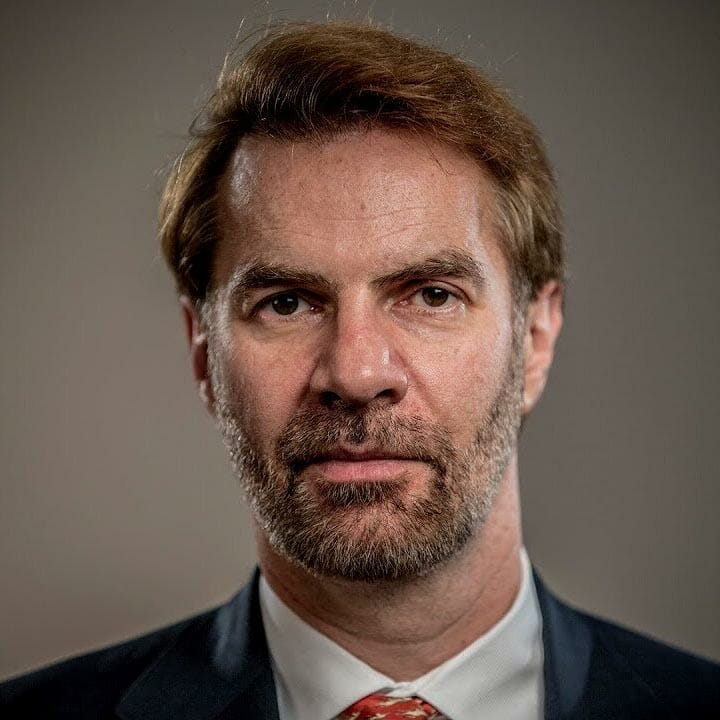
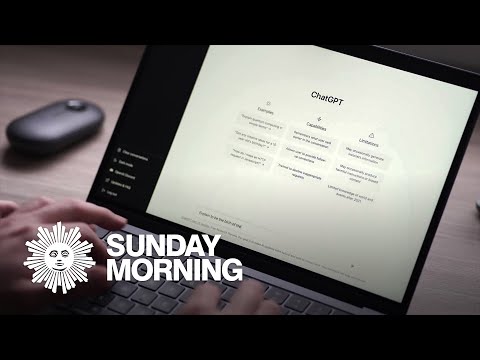
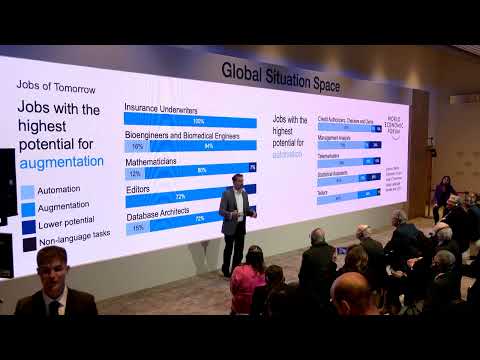
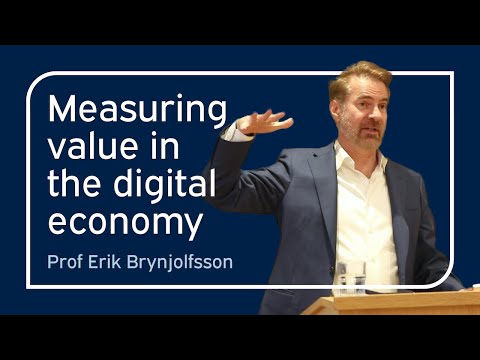

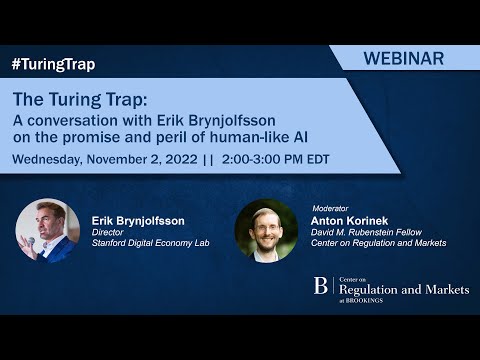
![The AI Awakening: Implications for the Economy [Erik Brynjolfsson]](jpg/hqdefault-272.jpg)
